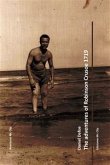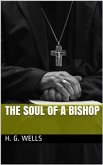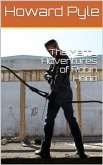Louis De Rougemont (12 November 1847 – 9 June 1921) was a Swiss explorer who claimed to have had adventures in Australasia. He was born in Switzerland. He held many jobs including servant, footman and butler. He tried working as a doctor, a 'spirit photographer' and an inventor with little success. In 1898 he began writing about his adventures in The Wide World Magazine. He claimed to have searched for treasures in New Guinea. He also said that he had spent 30 years living with the Indigenous Australians in the outback. This tribe was said to have worshipped his as a god. From the beginning there were many skeptics about his claims. When tested Rougemont could not find the areas he had visited on a map and would not speak the language he claimed to have known. The Adventures of Louis De Rougemont may be nothing but invention, but this does not detract from the fact that it is a fun book to read.
Bitte wählen Sie Ihr Anliegen aus.
Rechnungen
Retourenschein anfordern
Bestellstatus
Storno









